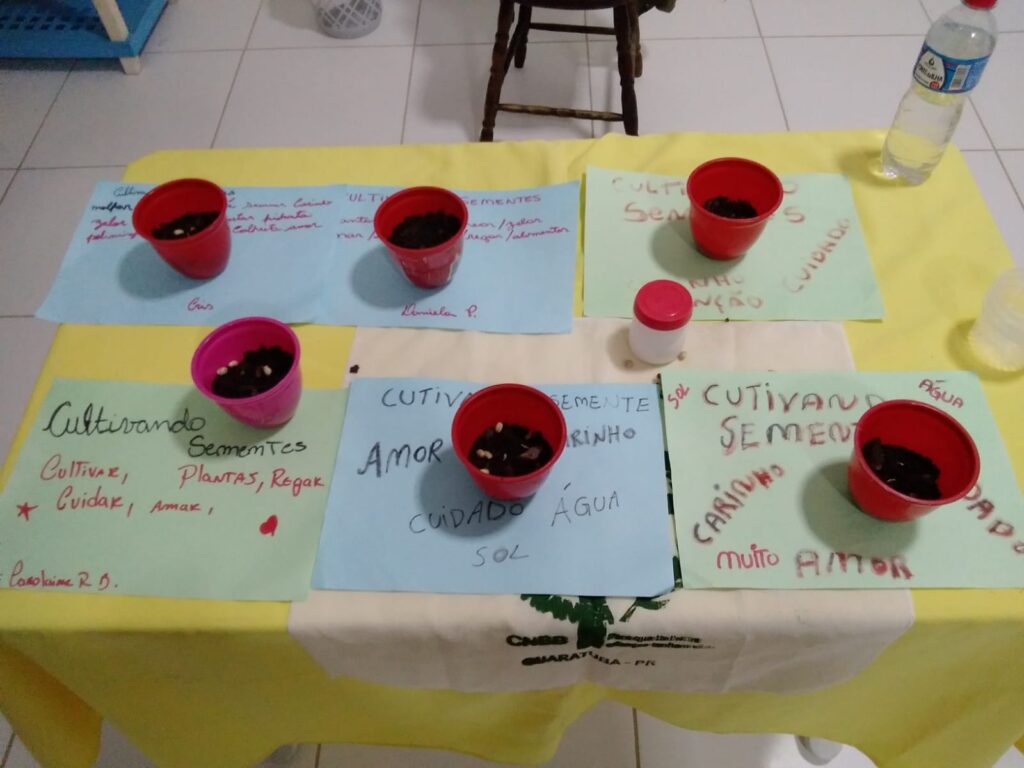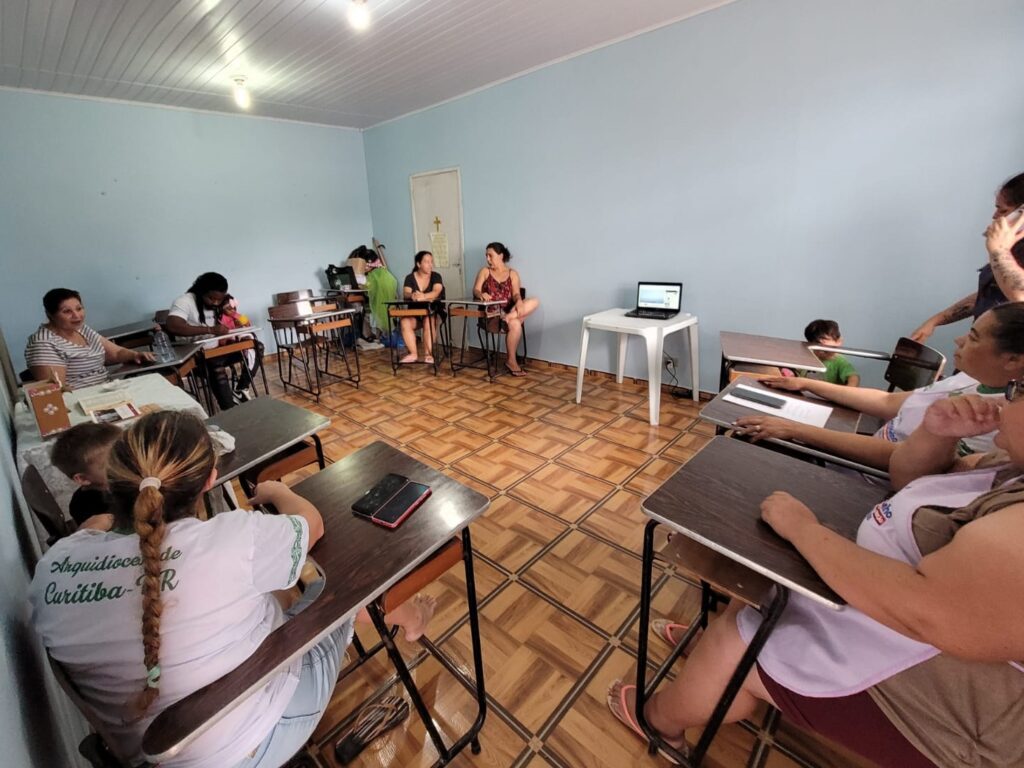
A series of workshops based on the “Toolkit: Nurturing the Spiritual Development of Children” took place in Brazil, bringing together 71 parents and caregivers, along with 121 children. Organized by Pastoral da Criança in collaboration with the Anthropology Departments at the Federal University of Mato Grosso and the Federal University of Santa Catarina, these workshops aim to inspire families to nurture children’s spirituality as a means to protect children from violence and foster their holistic development.
Pastoral da Criança has integrated the Toolkit into their existing program, ‘Celebração da Vida’ (Celebration of Life), which connects families in the community once a month. The program now includes Toolkit activities held twice a month for 90-minute sessions. These sessions, which began in October 2023, are conducted in four locations: Cuiabá, Florianópolis, Guaratuba, and Campo Largo.
The integration of the Toolkit complements existing content as it connects how fostering the spiritual development of children in the family can contribute to creating violence-free environments, developing positive relationships with caregivers, fostering resilience in children, supporting their social and emotional development, and fostering their mental health and psychosocial well-being. With this program, Pastoral encourages vulnerable families to become protagonists in their communities, so that they themselves can be agents of their own transformation.
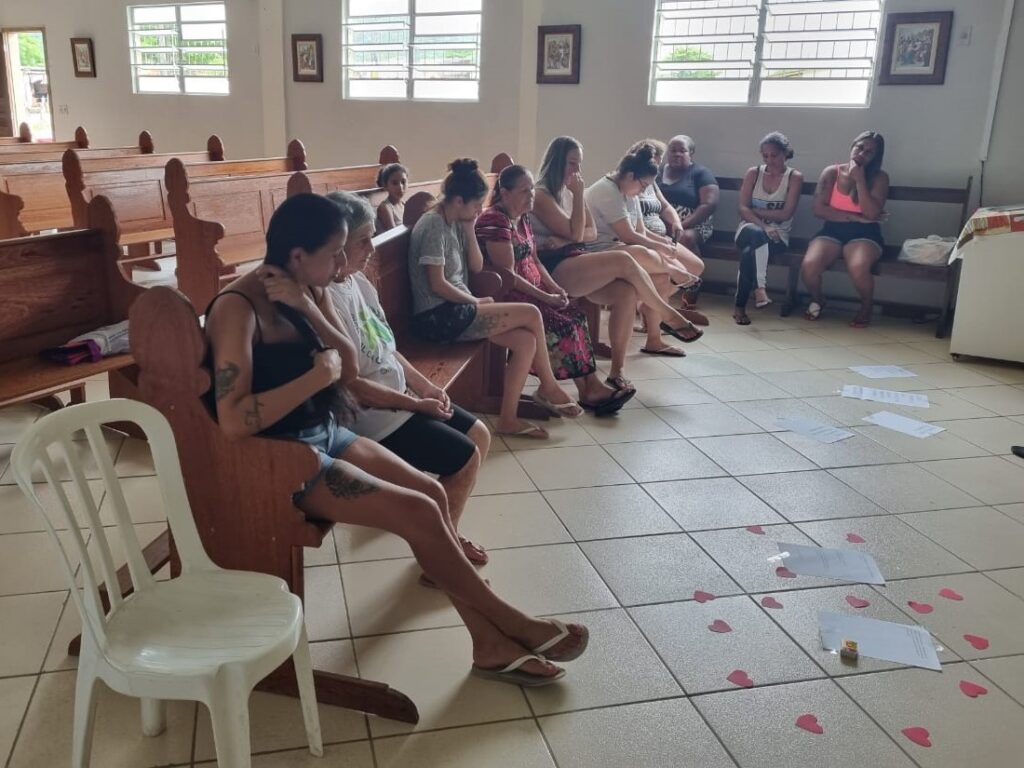
Digital Integration and Accessibility
To ensure broad accessibility, Pastoral da Criança translated the Toolkit into Portuguese and incorporated its content into their Android app. This app provides parents and caregivers with information on health, nutrition, education, and child development, and now it includes a focus on spirituality.
The app has become an essential tool for facilitators conducting home visits and community sessions. It features the learning program, guiding notes, and support materials for meetings with religious leaders. Facilitators can upload session reports, note challenges faced, and use Monitoring, Evaluation, and Learning tools such as registration and parent attendance. This digital adaptation not only reduces the printing costs and environmental impact but also exemplifies how technology and online tools can support the implementation of the Toolkit.
Local Adaptations and Community Engagement
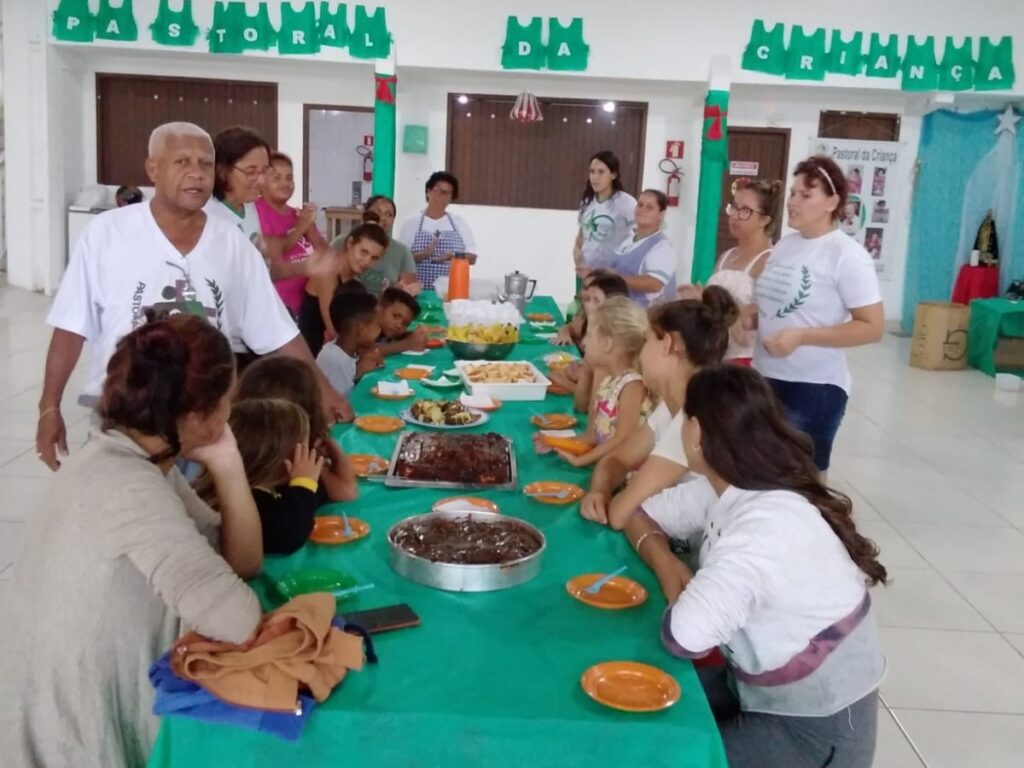
Pastoral da Criança has tailored the Toolkit to address issues specific to their context, such as violence and the lack of play opportunities. “I learned how to deal with playing with children, when it is time to play, and when it is time for duties. I learned to give more love and affection to each one and to understand and appreciate the importance of life,” shared a participant. “With the knowledge I gained from the course, I am now more patient with my daughters,” stated a mother of three. “I spend more time with them, pay more attention to them, and play with them more. As a result, they no longer misbehave to get my attention, which helps avoid stress for both them and me,” she continued while describing how the workshops helped her family strengthen their bonds and improve their relationships.
By forming support networks that include public, private, community, and religious institutions, volunteers and families work together to tackle these challenges. This localized content enhances the relevance of the Toolkit, ensuring it meets the needs of the communities it serves.
In Cuiabá, a Catholic Sister facilitating the sessions noted that parents shared personal stories of neglect and abandonment, highlighting the severe challenges they faced in their own childhood. In Guaratuba, a community leader highlighted that creating a safe and open environment encouraged participation and interaction, emphasizing the importance of setting the right tone for effective Toolkit implementation.
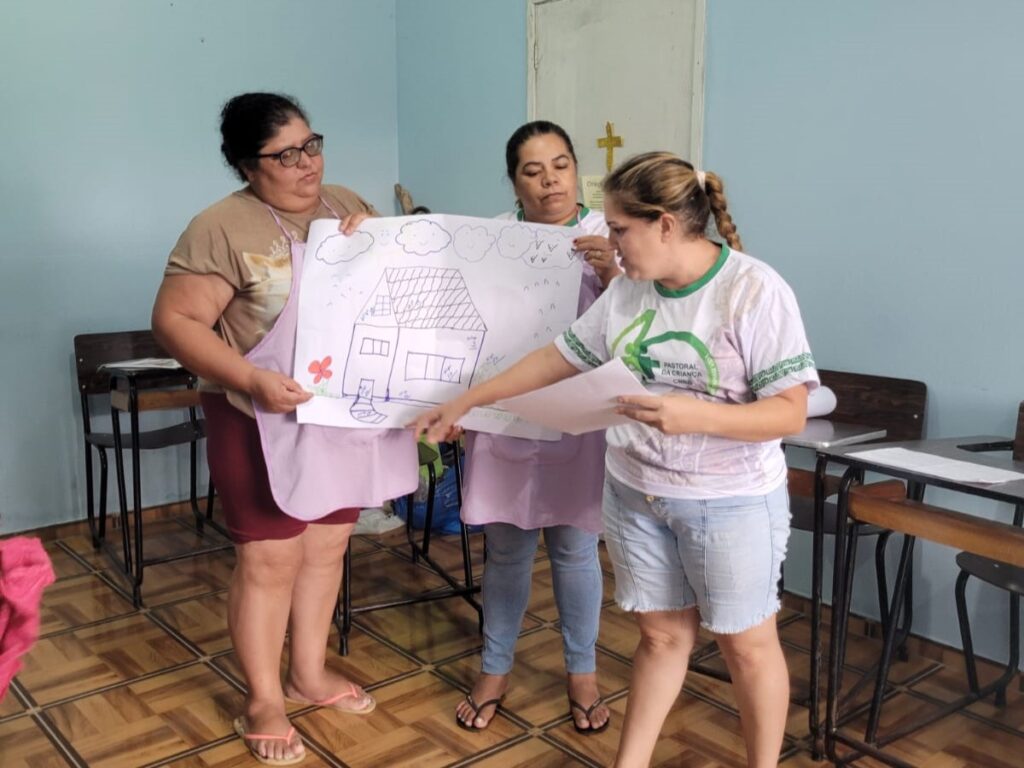
Caroline Dalabona, Nutritionists from Pastoral da Criança explained that “the approach always considers the participants’ opinions and what they have to say without judgment, leading to deep reflection and potential changes in the education and care of children.” The Toolkit addresses positive and respectful child upbringing methods, offering powerful alternatives to physical and emotional punishment, which is often used due to a lack of knowledge or perceived efficacy.
Promising Results and Future Plans
The team in Brazil has customized the learning program to include short activities for parents and caregivers as ‘homework.’ These activities engage families between sessions and promote three key conditions for nurturing spiritual development: safe and violence-free environments, positive caregiver-child relationships, and empowering experiences.
The initial implementation phase has shown promising results in engaging families and fostering holistic child development. Plans for Pastoral da Criança involve expanding these sessions to more families and other locations.
By leveraging digital tools and fostering community engagement, Pastoral da Criança’s innovative approach to implementing the Toolkit provides a model for other regions. Their efforts highlight the potential for holistic child development programs to create meaningful and lasting change in vulnerable communities.
We thank the leadership, staff, and volunteers of Pastoral da Criança, a member of the International Consortium on Nurturing Ethical Values and Nurture Spirituality in Early Childhood and of the GNRC, for their commitment to implementing the Toolkit. Special thanks go to the parents, caregivers and children for participating in the workshops with joy and enthusiasm.
